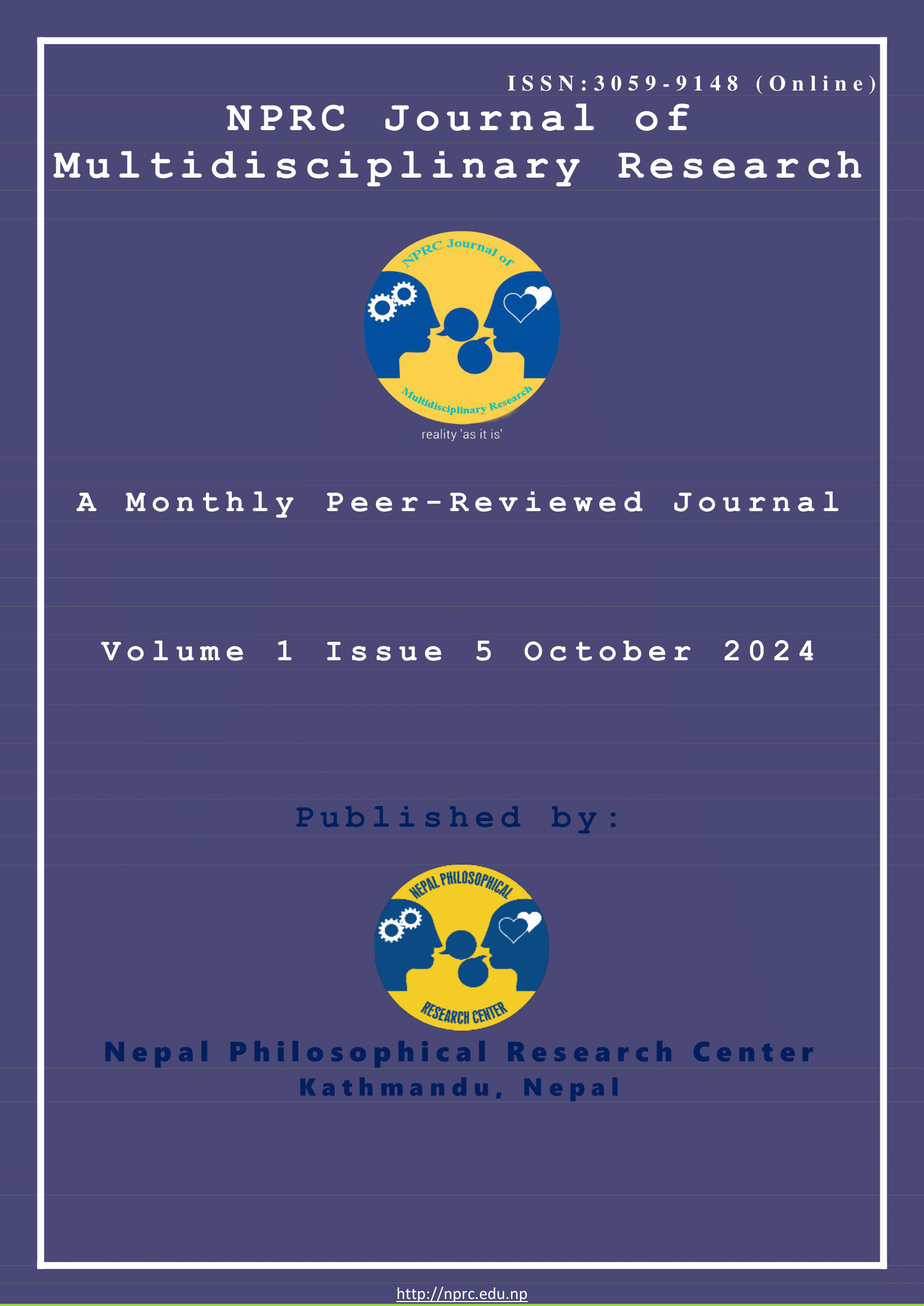Mindfulness at Work: A Bibliometric Analysis of Key Authors, Themes, and Trends
DOI:
https://doi.org/10.3126/nprcjmr.v1i5.71316Keywords:
Mindfulness, Workplace Well-being, Stress Management, Employee Engagement, Bibliometric Analysis, Co-authorship Network, Citation Analysis, Keyword Co-occurrence, VOSviewer, Organizational Psychology, WordsiftAbstract
Background: Mindfulness in the workplace has gained significant attention for its potential to enhance well-being, reduce stress, and improve productivity. As interest in workplace mindfulness has grown, a need arises to systematically analyze the influential studies, key authors, themes, and trends shaping this field.
Objectives: This study aims to map the intellectual landscape of "mindfulness at work" through a bibliometric analysis, identifying key contributions, collaboration networks, thematic clusters, and publication trends over time.
Methods: Utilizing data from Lens.org, we conducted a bibliometric analysis using VOSviewer and WordSift tools to examine co-authorship, keyword co-occurrence, and citation networks, as well as keyword frequency and thematic trends.
Findings: The analysis identifies central figures such as Jochen Reb and Christopher J. Lyddy and highlights prominent themes including well-being, stress management, and engagement, with a peak in publication interest around 2019. The study also reveals isolated research clusters, suggesting limited interdisciplinary integration within the field.
Conclusion: While mindfulness research at work is growing, opportunities exist for deeper cross-disciplinary collaboration and broader integration of themes.
Novelty: This study provides a comprehensive overview of the field’s development, offering insights into emerging trends, key influencers, and areas for future exploration, making it a valuable resource for researchers, practitioners, and policy-makers interested in advancing workplace mindfulness.
Downloads
Downloads
Published
How to Cite
Issue
Section
License
Copyright (c) 2024 The Author(s)

This work is licensed under a Creative Commons Attribution-NonCommercial 4.0 International License.
This license enables reusers to distribute, remix, adapt, and build upon the material in any medium or format for noncommercial purposes only, and only so long as attribution is given to the creator.





